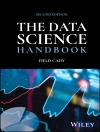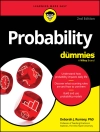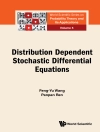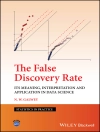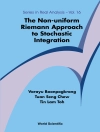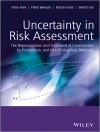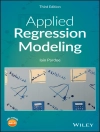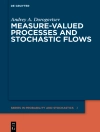‘ … the enterprise of today has changed … wherever you sit in this new corporation … Srinivasan gives us a practical and provocative guide for rethinking our business process … calling us all to action around rapid development of our old, hierarchical structures into flexible customer centric competitive force …. A must read for today’s business leader.’ Mark Nunnelly, Executive Director, Mass IT, Commonwealth of Massachusetts and Managing Director, Bain Capital
”Efficiency, ‘ ‘agile, ‘ and ‘analytics’ used to be the rage. Venkat Srinivasan explains in this provocative book why organizations can no longer afford to stop there. They need to move beyond – to be ‘intelligent.’ It isn’t just theory. He’s done it.’ Bharat Anand, Henry R. Byers Professor of Business Administration, Harvard Business School
In the era of big data and automation, the book presents a cutting-edge approach to how enterprises should organize and function. Striking a practical balance between theory and practice, The Intelligent Enterprise in the Era of Big Data presents the enterprise architecture that identifies the power of the emerging technology environment.
Beginning with an introduction to the key challenges that enterprises face, the book systematically outlines modern enterprise architecture through a detailed discussion of the inseparable elements of such architecture: efficiency, flexibility, and intelligence. This architecture enables rapid responses to market needs by sensing important developments in internal and external environments in real time. Illustrating all of these elements in an integrated fashion, The Intelligent Enterprise in the Era of Big Data also features:
* A detailed discussion on issues of time-to-market and flexibility with respect to enterprise application technology
* Novel analyses illustrated through extensive real-world case studies to help readers better understand the applicability of the architecture and concepts
* Various applications of natural language processing to real-world business transactions
* Practical approaches for designing and building intelligent enterprises
The Intelligent Enterprise in the Era of Big Data is an appropriate reference for business executives, information technology professionals, data scientists, and management consultants. The book is also an excellent supplementary textbook for upper-undergraduate and graduate-level courses in business intelligence, data mining, big data, and business process automation.
‘a compelling vision of the next generation of organization–the intelligent enterprise–which will leverage not just big data but also unstructured text and artificial intelligence to optimize internal processes in real time … a must-read book for CEOs and CTOs in all industries.’ Ravi Ramamurti, D’Amore-Mc Kim Distinguished Professor of International Business and Strategy, and Director, Center for Emerging Markets, Northeastern University
‘It is about the brave new world that narrows the gap between technology and business …. The book has practical advice from a thoughtful practitioner. Intelligent automation will be a competitive strength in the future. Will your company be ready?’ Victor J. Menezes, Retired Senior Vice Chairman, Citigroup
Venkat Srinivasan, Ph D, is Chairman and Chief Executive Officer of RAGE Frameworks, Inc., which supports the creation of intelligent business process automation solutions and cognitive intelligence solutions for global corporations. He is an entrepreneur and holds several patents in the area of knowledge-based technology architectures. He is the author of two edited volumes and over 30 peer-reviewed publications. He has served as an associate professor in the College of Business Administration at Northeastern University.
Inhoudsopgave
PREFACE xiii
ACKNOWLEDGMENTS xix
PART I CHALLENGES OF THE DIGITAL AGE
1 THE CRISIS HAS NOT GONE AWAY: OPPORTUNITY BECKONS 3
1.1 Introduction / 3
1.2 Challenges with Current Technology Paradigms: Chronic Issues of Time to Market and Flexibility / 9
1.3 The Emergence of Packaged Applications / 11
1.4 The New Front: Information; Big Data Is Not New; What Is New Is Unstructured Information / 12
1.5 Enterprise Architecture: Current State and Implications / 14
1.6 The Intelligent Enterprise of Tomorrow / 15
References / 15
PART II AN ARCHITECTURE FOR THE INTELLIGENT ENTERPRISE
2 EFFICIENCY AND AGILITY 19
2.1 Introduction / 19
2.2 The Process-Oriented Enterprise / 19
2.2.1 Becoming Process Oriented / 23
2.2.2 Why Must We Choose? / 24
2.2.3 Design and Execution / 25
2.3 Role of Outsourcing in Creating Efficiency and Agility / 26
2.4 Role of Technology in Efficiency and Agility / 29
2.4.1 Current Challenges with Technology / 30
2.4.2 BPM Software / 30
2.4.3 Role of Methodology / 32
2.4.4 Agile Not Equal to Agility / 33
2.5 A New Technology Paradigm for Efficiency and Agility / 35
2.5.1 Technology and the Process-Oriented Architecture / 35
2.5.2 RAGE AITM / 38
2.5.3 RAGE Abstract Components / 39
2.5.4 RIMTM – An Actionable, Dynamic Methodology / 40
2.5.5 Real Time Software Development / 43
2.6 Summary / 44
References / 46
3 INSIGHT AND INTELLIGENCE 51
3.1 Introduction / 51
3.2 The Excitement Around Big Data / 52
3.3 Information Overload, Asymmetry, and Decision Making / 54
3.3.1 Information Overload / 54
3.3.2 Information Asymmetry / 56
3.4 Artificial Intelligence to the Rescue / 59
3.4.1 A Taxonomy of AI Problem Types and Methods / 60
3.4.2 AI Solution Outcomes / 61
3.4.3 AI Solution Methods / 66
3.5 Machine Learning Using Computational Statistics / 68
3.5.1 Decision Trees / 69
3.5.2 Artificial Neural Networks (ANNs) / 71
Kernel Machines / 74
3.5.3 Deep Learning Architectures / 76
3.6 Machine Learning with Natural Language / 78
3.6.1 The ‘Bag-of-Words’ Representation / 78
3.6.2 Sentiment Analysis / 80
3.6.3 Knowledge Acquisition and Representation / 82
3.7 A Deep Learning Framework for Learning and Inference / 83
3.7.1 Conceptual Semantic Network / 89
3.7.2 Knowledge Discoverer / 91
3.7.3 Computational Linguistics Engine / 92
3.7.4 Impact Analysis / 95
3.7.5 Formulation of the Impact Analysis Problem / 96
3.8 Summary / 96
References / 99
4 THE INTELLIGENT ENTERPRISE OF TOMORROW 109
4.1 The Road to an Intelligent Enterprise / 109
4.2 Enterprise Architecture Evolution / 113
4.2.1 Technology Evolution / 113
4.2.2 Flexible, Near Real Time Software Development / 121
4.2.3 Machine Intelligence / 122
4.2.4 E4.0 Architecture / 123
4.3 Humans versus Machines / 126
4.4 Summary / 130
Appendix: A Five-Step Approach to an Intelligent Enterprise / 130
References / 131
PART III REAL WORLD CASE STUDIES
5 ACTIVE ADVISING WITH INTELLIGENT AGENTS 135
5.1 Introduction / 135
5.2 The Investment Advisory Market / 135
5.3 What Do Investors Really Need and Want / 137
5.4 Challenges with High-Touch Advisory Services / 137
5.4.1 Questions of Value and Interest / 137
5.4.2 The Massive ‘Wealth Transfer’ Phenomenon / 138
5.4.3 The Rise of Robo-Advisors / 139
5.4.4 Technology for HNWI’s Unique Needs / 140
5.5 Active Advising – A Framework Based on Machine Intelligence / 140
5.6 A Holistic View of the Client’s Needs / 142
5.7 Summary / 149
Appendix: The RAGE Business Process Automation and Cognitive Intelligence Platform / 150
References / 151
6 FINDING ALPHA IN MARKETS 153
6.1 Introduction / 153
6.2 Information Asymmetry and Financial Markets / 154
6.3 Machine Intelligence and Alpha / 157
6.4 How Well Does It Work? / 162
6.4.1 Data / 162
6.4.2 Measuring Lead-Lag Relationship / 162
6.4.3 Back-Testing Results / 164
6.5 Summary / 167
Appendix: Snapshot of the Operating Model at a Sector Level for the Oil and Gas Industry / 168
References / 168
7 WILL FINANCIAL AUDITORS BECOME EXTINCT? 171
7.1 Introduction / 171
7.2 The External Financial Audit / 173
7.2.1 Client Engagement / 173
7.2.2 Audit Planning / 173
7.2.3 Fieldwork / 174
7.2.4 Review and Draft / 176
7.3 An Intelligent Audit Machine / 176
7.3.1 Client Engagement / 179
7.3.2 Audit Planning / 180
7.3.3 Fieldwork / 181
7.3.4 Existence Tests / 181
7.3.5 Rights and Obligations / 182
7.3.6 Substantive Analytical Procedures / 182
7.3.7 Closing Balance Tests / 182
7.3.8 Analyze and Issue Financials / 18
Over de auteur
Venkat Srinivasan, Ph D, is Chairman and Chief Executive Officer of RAGE Frameworks, Inc., which supports the creation of intelligent business process automation solutions and cognitive intelligence solutions for global corporations. He is an entrepreneur and holds several patents in the area of knowledge-based technology architectures. He is the author of two edited volumes and over 30 peer-reviewed publications. He has served as an associate professor in the College of Business Administration at Northeastern University.




